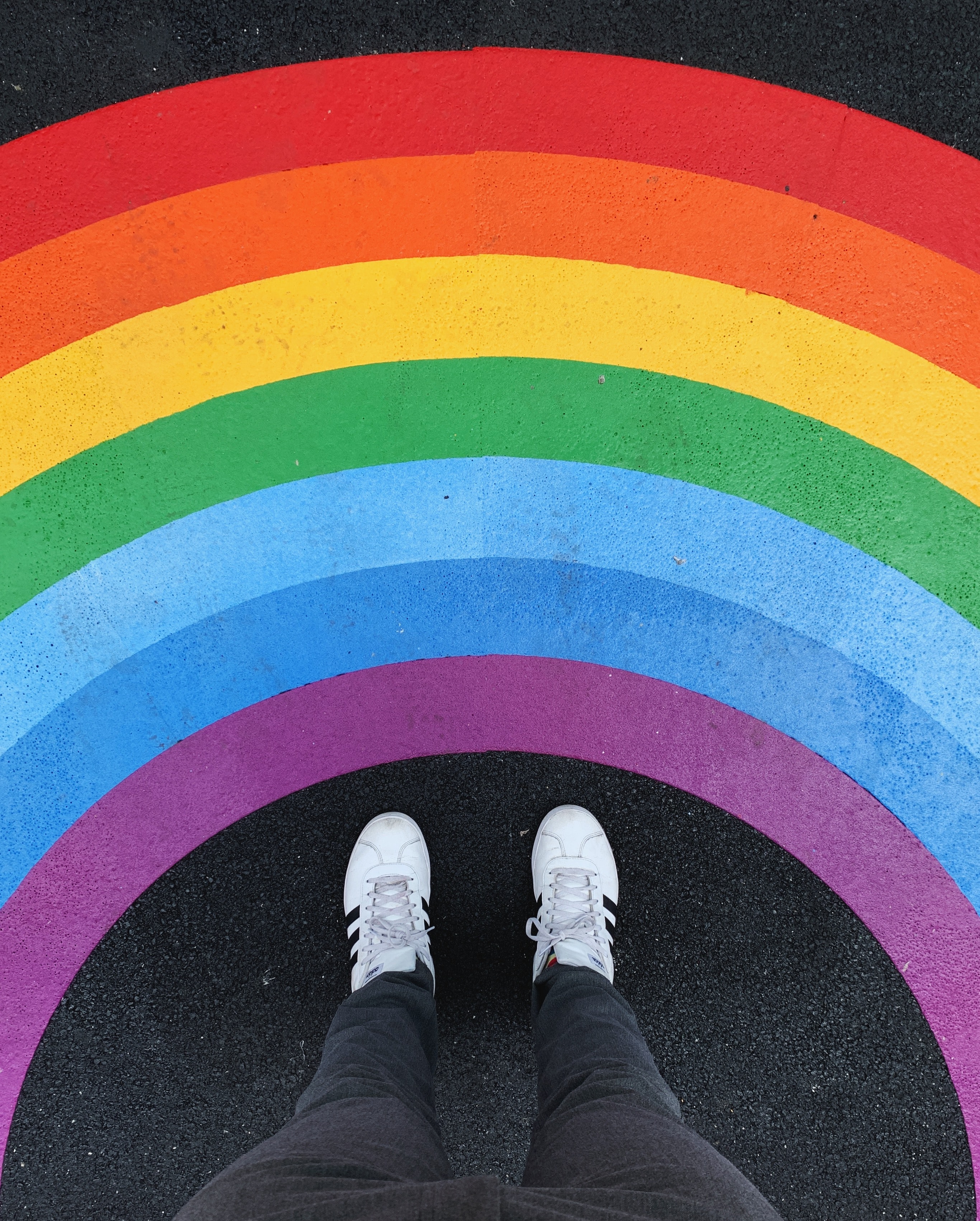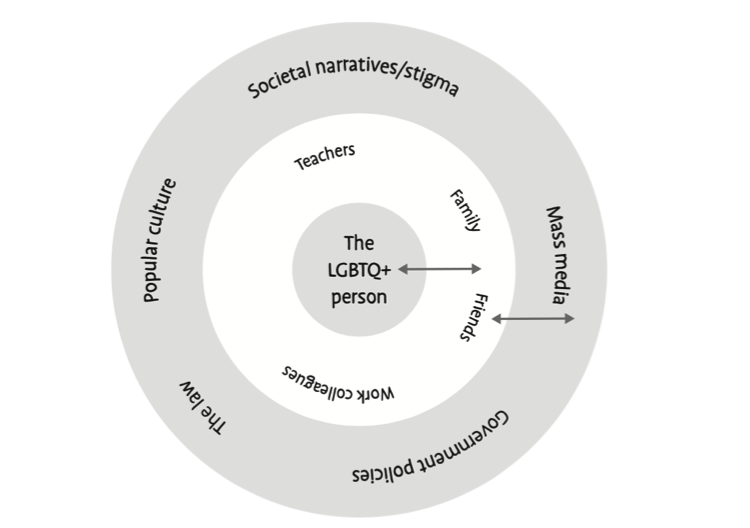Formulating LGBTQ+ Difficulties: Circles of Influence
-
-
Brendan J Dunlop
Understanding how our individual wellbeing is impacted by the people around us, and by wider systemic and structural forces, can be useful for all clients – and may be particularly powerful for LGBTQ+ individuals who experience self-blame. Brendan Dunlop, author of The Queer Mental Health Workbook, shares a conceptualisation for helping clients to understand the aetiology of some difficulties.

As humans we rarely exist in isolation. Almost always, we exist in relation to an ‘other’. I have found that it is even more important to hold the relational aspect of our existence in mind when formulating difficulties or challenges for lesbian, gay, bisexual, transgender and queer+ (LGBTQ+) people, given the persecution that LGBTQ+ communities have historically faced, and continue to face today.
Become an LGBTQ+ Affirming Therapist
Confidently work with clients on any part of the sexuality and gender continuum
One way to do this is to consider the ‘circles of influence’ around the individual that may be impacting upon their difficulty or difficulties. The model I have devised is based on Bronfenbrenner’s Ecological Systems Theory. We can picture the external factors that exist around us, with bigger circles influencing smaller circles.
- The outer circle draws the individual’s attention to wider systemic, structural, policy-based, narrative-informed considerations that exist around them. For example, narratives connected to masculinity or femininity, or policies or laws that exclude LGBTQ+ individuals from certain activities or privileges.
- The middle circle aims to consider which people or groups the individual interacts with, that could impact upon their wellbeing in helpful or unhelpful ways.
- Finally, the central circle is conceptualised as the individual and the difficulties that may be having.

Let’s take a (necessarily simplified) case example. Krystyna is 42 years old and originally from Poland. Krystyna is a lesbian woman and lost two fingers on her right hand in a workplace accident in Poland many years ago. She came to the UK 11 years ago, with her partner Zofia. Krystyna is currently experiencing low mood, feelings of anxiety and difficulties in her relationship with Zofia.
If we consider the wider system and environment that Krystyna has been living in, we may identify narratives connected to multiple minoritised aspects of her identity. For example, social stories exist around women (and their position in the world compared to men), sexuality (homosexuality being considered ‘lesser than’, or deviant from, heterosexuality), disability (in particular the value of aesthetics) and migration (a non-native of a country being considered ‘lesser than’ a native).
Whilst any one of these narratives could impact upon mental health and wellbeing, the stress and challenges caused by the combination or intersection of multiple aspects of Krystyna can compound this. Other systemic variables such as cultural differences or legal issues connected to homosexuality in Poland may be important considerations for Krystyna’s experience too: Krystyna and Zofia may have had to flee Poland due to fears for their safety because of their non-heterosexual relationship.
These factors can influence the people and groups around Krystyna too. Perhaps work colleagues or friends hold certain prejudiced ideas about some aspects of her identity, such as her sexuality. Perhaps they enact such prejudicial behaviours by excluding her from social events or making comments about her ‘lifestyle choice’. Perhaps Krystyna has internalised some of this prejudice (otherwise known as ‘internalised homophobia’) and has come to dislike these parts of herself; maybe even projecting some of this dislike onto Zofia.
Become an LGBTQ+ Affirming Therapist
Confidently work with clients on any part of the sexuality and gender continuum
Whether Krystyna’s colleagues have been talking about her or not, Krystyna may have learned to become hypervigilant to any perceived threat in order to keep herself and others safe, because of persecution in their home country. Thinking about Krystyna’s presenting difficulties of low mood and anxiety, and her relationship difficulties with Zofia, these feelings seem to make much more sense once we have considered the context that Krystyna is living in.
How can considering the circles of influence help clients?
Conceptualising LGBTQ+ difficulties in this way aims to help the individual make links between wider and broader systemic variables, the impact this has on the people or groups around them, and ultimately the impact that all this has on the individual. Considering how such factors ‘trickle down’ to impact upon individual wellbeing can be a powerful way of reducing self-blame and helping to understand the aetiology of some difficulties.
The circles of influence can help us as practitioners hold in mind the broader context of an LGBTQ+ person’s life and experiences and allow for multi-level intervention (at the individual, relational and systemic levels). Most importantly, I think, this broader way of formulating LGBTQ+ difficulties can help our client’s recognise that maybe what they are feeling or experiencing is quite understandable in a messy and unbalanced world.
Brendan Dunlop’s new book, The Queer Mental Health Workbook: A Creative Self-Help Guide Using CBT, CFT and DBT, is published by Jessica Kingsley.